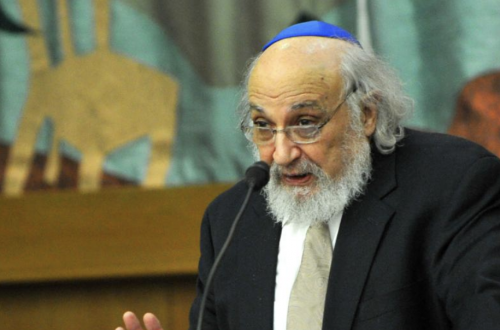This is a guest post by FormerCorr
As many students and faculty start a new term, it seems a good time to think aloud about the current state of higher education, and the way debates about this sector connect with the wider world.
Some people here have a low opinion of the Academy; I have my own frustrations. But by and large, the people I meet work very hard and care deeply about their students, their research, and the university as a wider public good.
At Harry’s Place and similar sites, when the subject comes up, the focus has been on the influence of the verkrappt left and extremist groups on academic life, and on campaigns for an anti-Israel boycott. Over at Engage, for example, David Hirsh recently posted an open letter to Claire Potter about her support for the American Studies Association boycott, which resulted in a brief dialogue.
But Potter, who writes the “Tenured Radical” column at the Chronicle of Higher Education, is generating passion in the US over a different issue – the political economy of academic employment and the tensions between tenured vs adjunct staff. This is a central concern, because at least half of all US faculty are now on insecure time-limited contracts.
The issue flared up recently, ahead of the annual conference of the Modern Language Association (MLA) which begins this coming Thursday – one of the biggest events in the US higher education calendar. The latest round of argument began when education pundit Rebecca Schuman wrote in anger about the way non-tenured job interviewees are treated.
When Claire Potter responded negatively to the angry tone, an argument broke out on social media. This led to predictable “check your privilege” in-fighting. One blogger, for example, wrote:
Simply put, there is no such thing as a higher education “job market” or “profession.” In an age when almost three quarters of faculty are teaching off the tenure track, it is beyond me how anyone can take seriously the idea that people who teach at colleges are part of anything, really. Even the word “profession” sounds pretentious.
The victim of the largely unedifying fight is any sense of solidarity to effect change. More light is shed, in my opinion, by arguments that focus on the bigger picture, and which take a longer view about the structural changes affecting higher education along with other areas of modern life. Blogger Timothy Burke writes, for example:
Most of the arguments about the unfairness of academic labor practices and academic culture are too small. [The realignment] is happening to more than academia […] Which means, equally, that contingent faculty banging on the closed door have many potential allies across a wide range of professions–but to make common cause with them still requires some of the choices I outlined earlier. Namely, were the professions as they once existed a good thing in those former terms? Or do we want to tear down their remaining shreds and fragments in order to make something radically new?
In this debate, the UK poses an interesting case study because it dropped tenure many years ago. Although the specific terms and conditions of academics do afford some (relative) independence, permanent staff have the same rights –no more no less – than other employees in the country. Compared to the US system, academics in the UK are also under more pressure to “perform”, for example through the Research Excellence Framework (REF) which measures “outputs” and “impact”.
On the other hand, even ordinary employment rights in the UK are better than the US, reflecting more extreme conditions of the wider American labour market where the lack of basic protections can lead to a bullying work culture. And compared to the US, the proportion of permanent appointments is bigger, with incentives for universities to keep it that way, for example as a way of competing for students.
But there is nothing to be complacent about. It is becoming increasingly difficult for new entrants to the academic job market to secure a permanent or full-time post at UK universities, and conditions for hourly paid staff are not great. In other words, the structural problem is not restricted to the US. In addition, although the UK is not as divided between permanent and temporary faculty, it is divided between elite and post-92 institutions. And pressure on good practice can take other forms.
Take the effect of the sudden and dramatic changes to HE funding that hit UK universities just over three years ago. Media coverage focused on fees going up but was silent, by and large, about the other key change – the near-total withdrawal of the “teaching grant” a main source of income for most universities which had enabled them to take the long view about staffing, research and curriculum. A system in place for decades was expected to turn on a sixpence.
To make things worse, the system replacing it was – is – in chaos. The government, reckless in this as in other policy areas, made up the rules as it went along because it kept being caught out by unexpected consequences (unexpected only by them) for both curriculum and finance.
The failure of the media, with rare exceptions, to explain this policy and its implications is to my mind one of biggest failures of UK journalism in the last few years. To this day, most people outside the HE sector have never heard about the sudden disappearance of the teaching grant, and therefore have no idea why universities as a bloc felt they had no choice but to opt for the higher end of the fee cap. A proportion of the public seems to think that the fee increase is “extra” money that goes straight into faculty salaries. So, despite the fact that academics share the hardships affecting the whole public sector, higher education meets incomprehension and envy rather than sympathy.
A snapshot of contradictory attitude can be gleaned from debate about contact hours. The complaint is that students don’t get enough of this, but the official figure never reflected reality, and the discrepancy is growing because it excludes the kind of 24/7 electronic contact that is increasingly expected. In addition, there is something depressing about the pedagogical assumption the expectation stance seems to entail, that no learning is going on unless the teacher is standing there, holding forth. And about the distortions created by the idea that if you can’t count it, it doesn’t count.
Over in America, as indicated above, the professional identity of academics is seen by some as a dispensible luxury. The argument follows similar lines to the dismissal of other professional groups who make any kind of claim to knowledge or expertise. They are perceived as authority, The Man to whom one should Stick It. Or perhaps has-beens, left behind by change.
What gets lost in the debate is the sense in which a professional academic identity can be a benefit not only for particular faculty but also for civil society as a whole. The big picture argument does not seem to be taking place, at least on a large public stage. The underlying question remains: what do we want from higher education? And what policies will help us get it?

